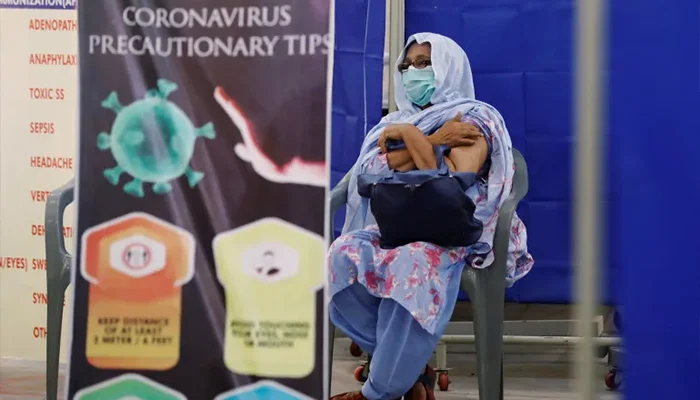The Sindh Health Department on Saturday issued a clarification regarding four deaths attributed to COVID-19, stating that it was not accurate to solely link the fatalities to the coronavirus.
In a statement, the provincial health department’s spokesperson said that the deceased patients were all above 60 years of age and also suffered from other co-morbidities.
The spokesperson added that all patients were undergoing treatment at a private hospital and were experiencing multiple complications.
Furthermore, the spokesperson stated that COVID-19 is now widely considered a common virus globally, and citing the virus as the sole cause of death could potentially lead to undue fear and panic among citizens.
This clarification came after reports indicated at least four individuals—primarily elderly with compromised immune systems and pre-existing health conditions—reportedly died of COVID-19 in Karachi amid a noticeable increase in cases over the past fortnight, as confirmed by officials and infectious disease experts to The News.
All the fatalities occurred at Aga Khan University Hospital (AKUH), which has observed a steady rise in COVID-19 admissions—a trend described by experts as “unusual” for this time of year.
Officials at the Dow University of Health Sciences (DUHS) suspect the current infections might be driven by the JN.1 subvariant of Omicron, a strain known to cause milder symptoms but still capable of inducing severe illness in vulnerable populations. “We’re going for gene sequencing to determine the exact variant responsible for the infections in Karachi,” an official stated.
During the COVID-19 pandemic, Pakistan utilized a diverse portfolio of vaccines from Chinese, Russian, European, and American manufacturers, including Sinopharm, Sinovac, CanSinoBio, Sputnik V, AstraZeneca, Pfizer-BioNTech, and Moderna. The initial vaccine rollout commenced with frontline workers, followed by the elderly, and then the general adult population.
This combination of traditional inactivated virus vaccines and mRNA-based formulations provided a broad immunity shield, which health officials assert helped limit the number of COVID-19 deaths in Pakistan to approximately 30,000 despite multiple waves of the virus and the prevalence of several variants, including Delta and Omicron.



